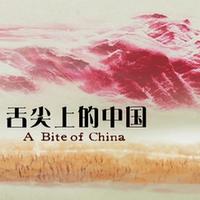#74: 舌尖 上 的 中国
#74: China on the Tongue
无论 在 哪 一个 国家 , 哪 一个 城市 , 你 都 可以 很快 地 找到 中国 餐馆 。
No matter which country or city, you can find Chinese restaurants quickly.
爱 吃 中国 菜 的 你 , 对 中国 的 饮食文化 了解 多少 呢 ?
If you love Chinese food, how much do you know about Chinese food culture?
你 知道 中国 不同 地区 的 人们 如何 获得 食物 的 原材料 吗 ?
Do you know how people in different parts of China can obtain raw materials for food?
你 知道 中国 人 吃 的 主食 在 南方 和 北方 有 什么 不同 吗 ?
Do you know the difference between the staple foods eaten by the Chinese in the South and the North?
你 想 了解 “ 蒸 ” 这种 烹饪 方法 可以 制作 出 怎样 的 美味 吗 ?
Do you want to know what kind of delicious food can be made from this steaming method?
你 想 获得 中国 美食 制作 的 秘诀 吗 ?
Do you want to get the secret of Chinese food production?
今天 , 我 向 大家 介绍 一部 关于 中国 饮食文化 的 纪录片 , 叫 《 舌尖 上 的 中国 》, 上面 这些 问题 的 答案 都 在 片子 中 。
Today, I introduced to you a documentary on Chinese food culture called “China on the tip of the tongue.” The answer to these questions is in the film.
《 舌尖 上 的 中国 》 一共 有 7 集 , 分别 从 多方面 展现 了 中国 饮食文化 的 魅力 , 以及 中国 人 自古以来 对 美食 的 执着 探索 , 通过 讲述 一个个 真实 的 故事 , 从 文化 的 角度 解释 “ 吃 ” 这件 事 。
There are seven episodes of “China on the tip of the tongue”, which show the charm of Chinese food culture in many aspects and the persistent exploration of Chinese cuisine since ancient times. It explains “eat” from a cultural point of view by telling one true story. this matter.
这种 食物 和 人 的 紧密 关系 , 让 很多 远离 家乡 在 外地 工作 的 观众们 想起 了 故乡 的 味道 。
This close relationship between food and people reminds many viewers who work away from home to recall the taste of their hometown.
有句 话 说得好 , 最 好吃 的 菜 是 妈妈 做 的 菜 , 最好 的 东西 是 故乡 的 东西 , 最好 的 回忆 是 童年 的 回忆 。
There is a good saying that the best food is the food my mother has made. The best thing is the hometown thing. The best memories are memories of childhood.
《 舌尖 上 的 中国 》 唤起 的 不仅 是 人们 关于 美食 的 回忆 , 还有 对 家乡 和 亲人 的 思念 。
The Chinese on the tip of the tongue evoked not only the memory of people, but also their memories of their hometown and their loved ones.
中国 美食 的 种类 非常 多 , 每个 城市 和 地区 都 会 有 当地 的 特色菜 , 因此 许多 中国 人 把 “ 吃 ” 当做 一种 爱好 。
There are many kinds of Chinese food, and each city and region will have local specialties. Therefore, many Chinese regard “eating” as a hobby.
现在 , 这些 特别 会 吃 、 特别 爱 吃 的 人 , 经常 会称 自己 为 “ 吃货 ”。
Nowadays, those who particularly eat and especially love to eat will often call themselves "eating goods."
他们 喜欢 品尝 各类 美食 , 并 对 美食 有 一种 独特 的 向往 和 追求 。
They like to taste various foods and have a unique yearning and pursuit of food.
他们 经常 会花 几个 小时 在 路上 , 只是 为了 去 新开 的 餐馆 品尝 美食 。
They often spend several hours on the road, just to eat in the new restaurants.
他们 会 把 “ 吃 ” 当作 旅游 的 一部分 。
They will treat eating as part of tourism.
他们 也 会 在 每次 品尝 美食 的 时候 拍摄 诱人 的 照片 , 发到 社交 网上 和 朋友 分享 。
They will also take seductive pictures each time they savor the food and send it to social networks to share with friends.
每个 人 只要 热爱 美食 , 都 可以 自称为 “ 吃货 ”。
As long as everyone loves food, they can call themselves "eating goods."
汉语 中 , 有关 “ 吃 ” 的 表达法 非常 多 。
In Chinese, there are many expressions about "eating."
花费 积蓄 叫 吃 老本儿 , 受欢迎 叫 吃香 , 受到 伤害 叫 吃亏 , 女人 嫉妒 叫 吃醋 , 参加 课外 辅导班 叫 吃小灶 , 靠 妻子 养活 的 男人 叫 吃软饭 。
The people who spend their savings are called old ones, they are popular, they are popular, they are injured, they are hurt, the women are jealous, they are jealous, they go to extra-curriculum classes, and they eat small stoves. The man who feeds his wife is called soft rice.
可以 看出 “ 吃 ” 这件 事 在 中国 传统 文化 中 的 重要性 。
It can be seen that the importance of “eat” in traditional Chinese culture.
你 还 能 想 出 其他 和 “ 吃 ” 有关 的 表达法 吗 ?
Can you think of other expressions related to "eating"?
欢迎 在 慢速 中文网站 上 与 我们 交流 讨论 !
Welcome to discuss and discuss with us on the slow Chinese website!

